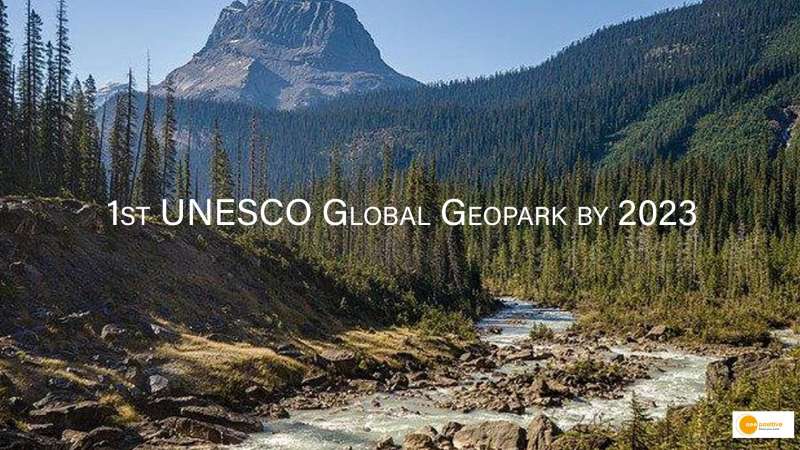

Geologists and palaeontologists in India are working to establish the country’s first UNESCO Global Geopark. The Dinosaur Fossil National Park in Bagh, Madhya Pradesh, is preparing to be awarded the prestigious title. This isn’t your ordinary dinosaur site. The national park contains Asia’s oldest dinosaur fossils, including dinosaur footprints, sauropod bones, a complete dinosaur nest with eggs, shark teeth, tree fossils, and other marine organism fossils. The Madhya Pradesh Ecotourism Development Board is also on board in bringing the UNESCO Global Geopark tag to the state.
The secretary of The Society of Earth Scientists, Dr Satish C Tripathi, is leading the effort to create a checklist for the UNESCO tag.
He stated that it would be finished by October 2023. “Small countries such as Malaysia, Iran, and Chile have UNESCO geoparks,” Dr. Tripathi added. Despite its extensive geological heritage, India has yet to receive one. Bagh is the only area that meets all of the criteria for a geopark.”
A perfectly preserved dinosaur egg was discovered at the site nearly two decades ago. In 2006, amateur explorers led by Vishal Verma, a secondary school physics teacher, made this incredible discovery. More dinosaur nests, teeth, and bones were discovered soon after. The state forest department designated the area as a Dinosaur Fossil National Park in 2011.
161 geoparks in the world
There are currently 161 UNESCO Global Geoparks in 44 countries. This prestigious designation is given to sites that are single, unified geographical areas that are sites and landscapes of international geological significance. UNESCO Global Geoparks award international recognition to sites that promote the importance of protecting our planet’s geodiversity while actively engaging with local communities. China currently has the most global geoparks. 41 of the 161 Geoparks are in China. The work of
Geoparks began in 2001, when a collaboration agreement was signed between the UNESCO Division of Earth Sciences and the European Geoparks Network.


